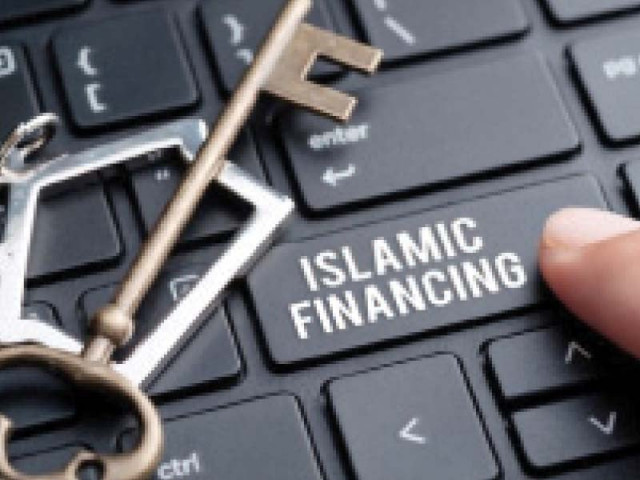Transforming Riba-based economy
If govt is really interested, then it has to show some real progress on the ground

The recent statement of Finance Minister Ishaq Dar to steer the country’s economic and financial system away from the conventional interest (Riba)-based system garnered some appreciation at least from his coalition partner, Jamiat Ulema-e-Islam-Fazl (JUI-F) chief Maulana Fazlur Rehman.
The optics were good, however, besides giving the timeframe of five years, Dar failed to provide any detailed roadmap and execution plan, especially in the backdrop of the precarious economic and financial situation where the Q-block cannot even blink without a clear nod from the IMF.
So far, in the two institutions that will withdraw their appeals against the Federal Shariah Court’s decision, namely the State Bank of Pakistan (SBP) and the National Bank of Pakistan (NBP), the government has a majority shareholding. However, it is not clear whether the private banks that are responsible for the majority of interest-based lending to both the public and private sectors are on board or not.
Beyond any doubt, the existing Riba-based financial system is totally prohibited in Islam, however, the challenge remains twofold.
Firstly, is it even possible to create a standalone economic and financial model in a country that is heavily dependent on borrowing both locally and internationally to stay afloat?
Secondly, even if such a system is implemented here or existed somewhere else, will that even qualify to be a true Islamic system?
Let’s begin probing the first challenge by looking at the official account of the total external public and publicly-guaranteed debt stock of over $97 billion, from which about $66 billion is maturing between fiscal years 2023 and 2027.
Since the major debt chunk of around $74 billion cannot be rescheduled, the Ministry of Finance is looking for avenues for additional financial support, which in a nutshell involves more interest-based borrowing such as floating bonds in international markets.
On top of that, the nation has been hit by the unprecedented flooding since June, triggering a humanitarian crisis and causing an estimated $30 billion in damages.
A draft paper from the UN Development Programme in September proposed that Pakistan negotiate debt relief with its creditors, the prospect of which caused havoc for the country’s bonds in the international market as investors assumed that Pakistan will not be able to pay interest on loans.
Later, the finance minister reassured the international market of honouring all the debt obligations to calm the nervous investors, who were desperately dumping Pakistan’s bonds, causing the yield to spike from 4.4% to 84.8%.
Now, look at the true Islamic principle of the financial system, which requires an equitable model of profit and loss sharing that requires the circulation of capital to promote economic activities rather than the accumulation of wealth in the hands of a few without taking any risk.
If we scrutinise the existing Islamic financial and banking model in light of the above, then there are many questions that if the above-stated principles are actually applied in true spirit.
If we take the example of the profit and loss sharing model, then we know that banks, whether Islamic or conventional, do not take any risk on their balance sheet and try to play safe and stay in their comfort zone.
Looking at the balance sheets, the asset side of the Islamic banks is built mostly by comfortable lending to the government for budget deficit financing rather than to the businesses that drive economic activities in society because they also carry the risk of losses.
Also, even if the lending is done to the businesses, it is extended only to the large blue-chip companies using the Musharakah model, which seeks return based on the “Karachi Inter-bank Offered Rate” (Kibor+) instead of the profit and loss sharing model.
That is why during Covid when the profits of businesses shrank, the bank profits remained intact and even increased, when the State Bank raised the interest rate to a whopping 13.75% which, in turn, triggered a rise in Kibor.
Despite the order of the Federal Shariah Court in 1991 to ban all sorts of Riba-based transactions, no real efforts had been made so far by any government to develop a solution that is not only viable and acceptable globally but also conforms to all Shariah requirements in true letter and spirit.
This time around, if the government is really interested in transforming the economic and financial system, then it has to show some real progress on the ground and not just the intent. Otherwise, the statement from the finance minister will only be taken as a political rhetoric or slogan to be used in the campaign for next elections.
The writer is a financial market enthusiast and is attached to Pakistan’s stocks, commodities and emerging technology
Published in The Express Tribune, November 21st, 2022.
Like Business on Facebook, follow @TribuneBiz on Twitter to stay informed and join in the conversation.



















COMMENTS
Comments are moderated and generally will be posted if they are on-topic and not abusive.
For more information, please see our Comments FAQ